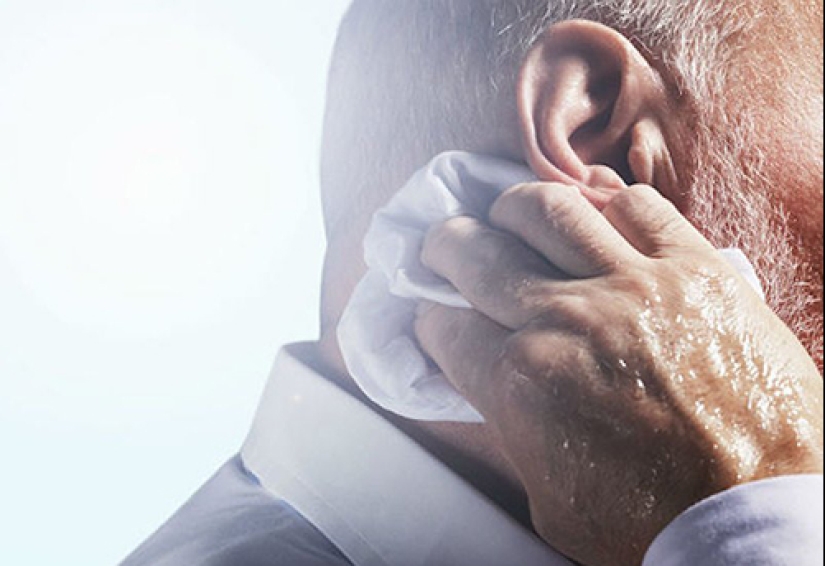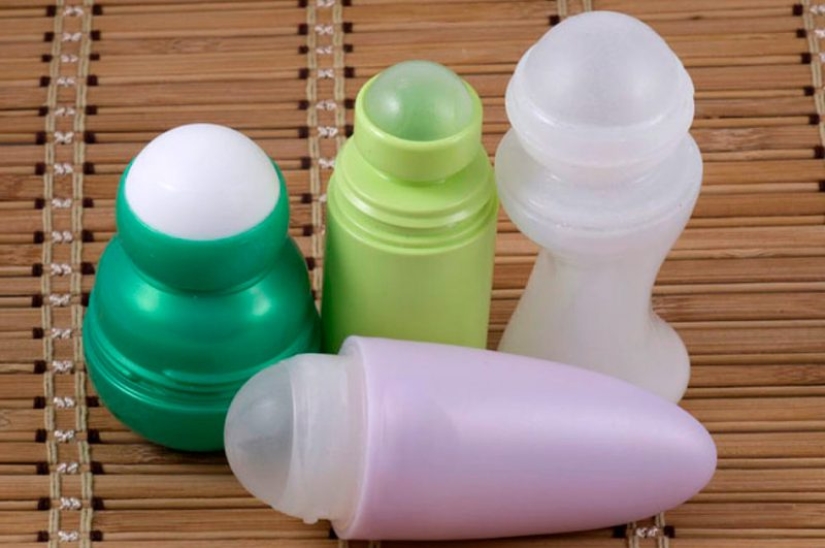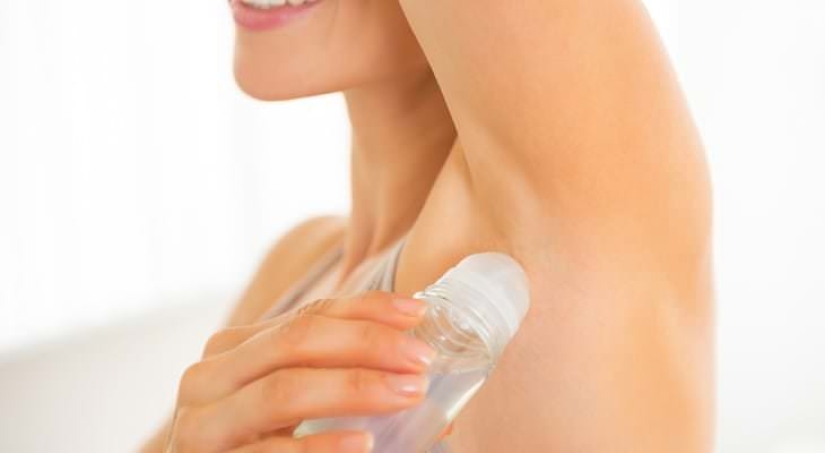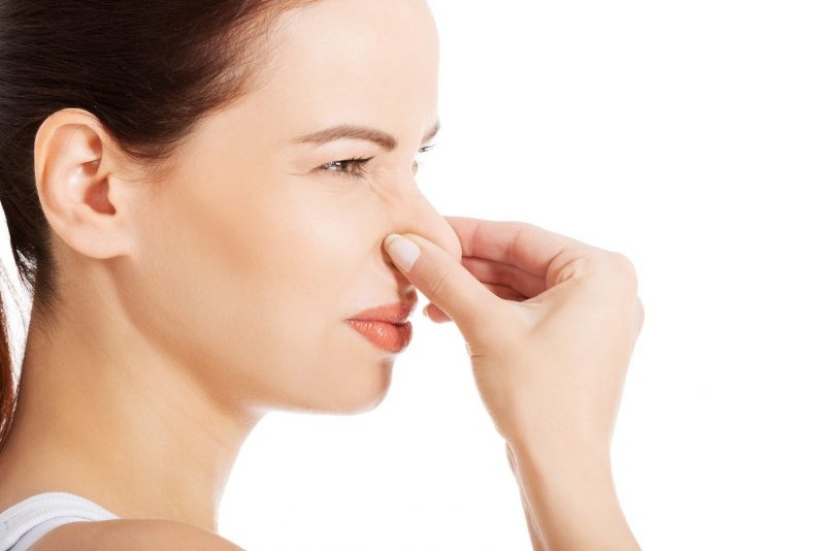What is so dangerous about deodorants: all the myths and the truth about cosmetics that we use every day
Categories: Health and Medicine | Society | World
By Pictolic https://pictolic.com/article/what-is-so-dangerous-about-deodorants-all-the-myths-and-the-truth-about-cosmetics-that-we-use-every-day.htmlIt's probably not the first time you've heard about the dangers of deodorants. But it is not so easy to abandon their use, especially during the hot summer, when the body sweats much more than usual…
Let's find out if these cosmetics are really harmful to human health, and which remedy to choose to minimize this harm?

To begin with, let's determine what is the difference between deodorant and antiperspirant, because most consumers still confuse these two concepts.
Deodorant is a cosmetic product that destroys the bacteria that inhabit our skin, and thanks to this helps to get rid of the unpleasant smell of sweat (only from the smell!). Antiperspirant is rather a drug that helps to block the ducts of the sweat glands and reduce sweating.
From an aesthetic point of view, antiperspirant is better, because thanks to it you will not sweat. But at what cost?

Sweat is a fluid secreted by special skin glands. There are thousands of such glands in humans, on the palms alone there are up to 2500 per square centimeter.
Sweat glands are involved in thermoregulation and are necessary for cooling the body. In addition, together with sweat, a person secretes various active substances, including sulfuric acid compounds, lactic acid, urea, some amino acids, ammonia.
Sweat secretion is a natural biological process, and by exposing it to blocking, we provoke a serious malfunction of the sweat glands. But even this is not the main danger of deodorants and antiperspirants. The problem is that the chemicals included in their composition, immediately entering the bloodstream through the skin and, unlike, for example, food, do not undergo pre-treatment with the help of the gastrointestinal tract and liver.

Of course, not all substances reach the bloodstream — the "absorbency" depends on their chemical properties and characteristics of the body. However, numerous blood tests of persons using such cosmetics have confirmed the presence of dangerous components in it. Many of them, as studies show, are also able to settle on fat cells, of which there are just a lot in the armpits.
Experts are concerned about the active use of deodorants and antiperspirants, because, according to them, there are also hormonal receptors in the skin of the armpits, so their contamination with chemical components can affect reproductive function and lead to an increased risk of developing various types of cancer.

Here are the dangerous additives found in deodorants and antiperspirants most often:
As a part of cosmetics, parabens, as a rule, play the role of preservatives. But research has shown that they are not as safe as originally thought. Some of them can affect the production of hormones, including estrogens. Consequently, the risk of developing cancer increases from here.
And although there is no exact confirmation of this theory, many experts are sure that parabens and cancer are inextricably linked. But since the formation of a tumor is a complex multi—stage process that can take several years to confirm the connection of diseases and these cosmetic components, many additional studies are required.
Triclosan is added to most modern cosmetics to prevent their contamination by bacteria. However, the benefits of this substance have been actively debated for a long time. The fact is that triclosan has several frightening properties. Firstly, this component causes hormonal activity, secondly, it interacts with the gut microbiome, and thirdly, it affects genes.
In the course of animal studies in fish and amphibians who received triclosan on a regular basis, the function of the thyroid gland, which is so necessary for the normal functioning of the brain, significantly decreased.

Everyone has heard that this metal is part of the majority of antiperspirants, but only a few know what role it plays in the body. Penetrating into the skin cells, aluminum causes the "instability" of the genes of the breast tissue, which, in turn, can lead to the formation of cancer cells.
As in the case of parabens, there is no absolute proof of this theory, but scientists say that people use antiperspirants at their own risk.
Any cosmetic product has its own fragrance, and antiperspirants are no exception. However, the "perfume", with which the "smell of aloe, chamomile or lotus flower" is given, may consist of the most "unexpected" components. And it is usually impossible to find out its composition, because it is protected by a trademark.
It is possible that allergens or phthalates may be present in it, provoking unpleasant skin reactions. That is why even the simple inhalation of aromas of cosmetic products causes allergies in some people.
The very phthalates that can be part of modern fragrances allow cosmetics to linger on the skin for a long time. But, as it turned out, they are also able to disrupt the function of male hormones — androgens, which are responsible for the use of testosterone.
Many people mistakenly think that testosterone is needed only by men. But in the body of women, it plays an important role, namely, it is responsible for tone and muscle strength. When its production is disrupted, there is a decrease in reproductive function and disorders in fetal development.
The worst thing is that phthalates are found in all products that have a fragrance, from shower gel to soap. Therefore, given the above, perhaps it's time to abandon any unnatural cosmetics, especially since, as we wrote earlier, it causes great harm to the environment.

Even in ancient Egypt and China, alum was used to get rid of the smell of sweat. This rock mineral is a mixture of aluminum and potassium salts, and helps to absorb excess moisture without blocking sweat ducts, as does an antiperspirant. Thanks to the acid in the composition, alum also has an antibacterial effect, and, as you know, it is bacteria that lead to the appearance of an unpleasant odor in sweat.
However, alum has its drawback. For example, individual intolerance, which can develop in the process of using them. In addition, this substance should not be used during pregnancy or lactation. Otherwise, it is an excellent alternative to modern cosmetics, which does not pose a danger to the body.
Another popular analogue of conventional deodorants and antiperspirants is the so-called "weekly antiperspirants", which need to be used only once every 7 days. Isn't it tempting? But only the aluminum content in such products is almost three times higher than the content in the usual cosmetic products. And this despite the fact that the "weekly antiperspirant" is not a panacea. Yes, it really helps to stop the production of sweat in the armpit area, but at the same time, moisture separation in other parts of the body increases.
However, studies have shown that these drugs in most cases do not cause side effects. They rarely lead to itching, allergies and dryness, but this mainly occurs against the background of individual intolerance of a person to one of the components. Of course, the high aluminum content in "weekly antiperspirants" cannot remain harmless. Salts of this metal can lead to inflammation of the lymph nodes and cause itching. Therefore, such drugs are contraindicated during pregnancy or breast-feeding, as they can be dangerous for the body of the mother and the unborn child.

Antiperspirant should be applied in the evening after a shower, when the skin of the armpits is completely dry. The product will start working when the chemicals in its composition are completely absorbed. Therefore, applying antiperspirant in the morning, you risk sweating quickly, which means the components will not have time to get deep into the skin.
It is highly not recommended to apply the product to large areas of the body before sports, as many do. So you block sweating and there is a violation of thermoregulation, as a result of which the body quickly overheats.
Recent articles

It's high time to admit that this whole hipster idea has gone too far. The concept has become so popular that even restaurants have ...

There is a perception that people only use 10% of their brain potential. But the heroes of our review, apparently, found a way to ...

New Year's is a time to surprise and delight loved ones not only with gifts but also with a unique presentation of the holiday ...